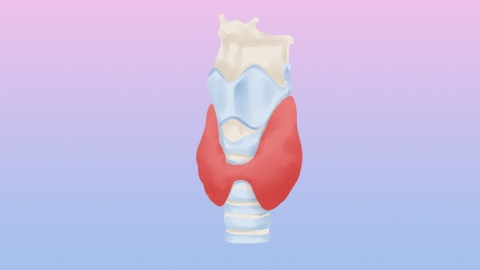What is hypothyroidism?
Hypothyroidism generally refers to an underactive thyroid. Under normal circumstances, hypothyroidism may be caused by abnormal iodine intake, aging, Hashimoto's thyroiditis, thyroid surgery, radioactive iodine treatment, and other factors. It is recommended to seek timely medical consultation, identify the underlying cause, and then improve the condition through dietary adjustments, medication, and other methods under a doctor's guidance. Detailed explanations are as follows:

1. Abnormal iodine intake: Long-term excessive or insufficient iodine intake can both affect thyroid hormone synthesis. Adjust iodine intake to approximately 120 micrograms per day, consume moderate amounts of iodized salt, and eat seaweed 1-2 times per week. Avoid long-term extreme iodine intake to maintain normal thyroid function.
2. Aging: After age 40, thyroid tissue gradually degenerates, leading to weakened function and decreased hormone secretion, which is more common in women. Maintain regular exercise in daily life—30 minutes per session, 3-5 times per week—to promote metabolism and delay thyroid function decline.
3. Hashimoto's thyroiditis: The body's immune system mistakenly attacks thyroid tissue, causing damage to thyroid follicles, reduced hormone synthesis, and accompanying thyroid enlargement. Patients should follow medical advice to take medications such as levothyroxine sodium tablets, thyroid tablets, or levothyroxine sodium enteric-coated tablets to supplement hormones.
4. Thyroid surgery: Partial or total thyroidectomy performed due to thyroid nodules, hyperthyroidism, etc., leads to reduced thyroid tissue and insufficient hormone secretion post-surgery. Immediately after surgery, hormone replacement therapy should be initiated under a doctor's guidance using medications such as levothyroxine sodium tablets, thyroid tablets, or levothyroxine sodium enteric-coated tablets.
5. Radioactive iodine treatment: Radioactive iodine used to destroy thyroid tissue in treating hyperthyroidism may lead to hypothyroidism, accompanied by sensitivity to cold and slowed heart rate. Regular follow-up examinations of thyroid function are necessary after treatment, and if hypothyroidism develops, hormone supplementation should be initiated promptly under medical guidance using medications such as levothyroxine sodium tablets, thyroid tablets, or levothyroxine sodium enteric-coated tablets.
In daily life, it is important to stay warm and avoid cold exposure to prevent worsening of cold intolerance. Increase intake of high-quality protein and dietary fiber in the diet to improve metabolism. Comprehensive lifestyle adjustments can help maintain stable thyroid function and enhance quality of life.







